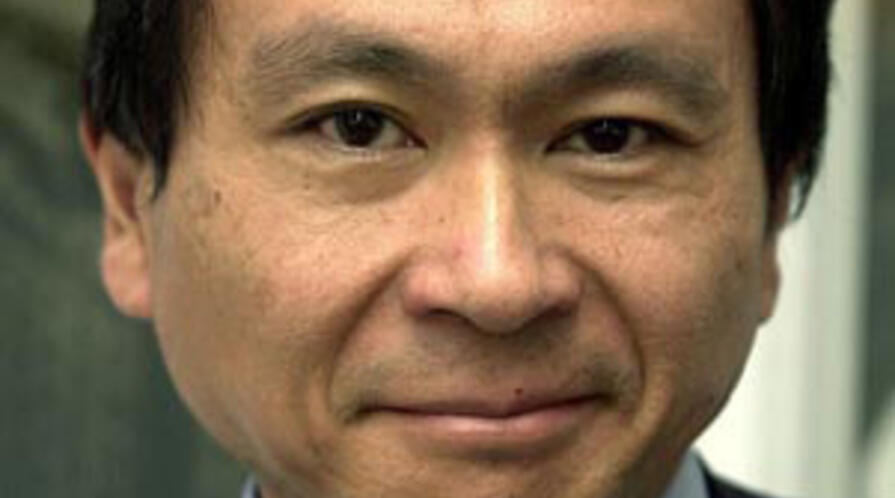Democracy and development expert Francis Fukuyama joins FSI

Francis Fukuyama, one of the world's most prominent experts on democracy, development, and governance has joined Stanford University's Freeman Spogli Institute for International Studies (FSI) as the Olivier Nomellini Senior Fellow, effective July 2010. He will reside in FSI's Center on Democracy, Development, and the Rule of Law, and fully engage in the center's research, teaching, and policy missions, CDDRL Director Larry Diamond announced.
I am thrilled to be joining Larry Diamond,
Stephen D. Krasner, Kathryn Stoner and other colleagues in CDDRL's research,
teaching, and policy engagement," said Fukuyama. "CDDRL is world renowned for its interdisciplinary programs
which bridge academic research and policy analysis - and we need break-through
thinking in both to advance political and economic development."
- Francis Fukuyama
Fukuyama comes to FSI from the Paul H. Nitze School of Advanced International Studies (SAIS), Johns Hopkins University, where he was the Bernard L. Schwartz Professor of International Political Economy and director of the International Development Program at SAIS.
"We are thrilled that Frank is joining CDDRL and our quest to understand how countries advance politically and economically and the role governance plays in these interrelated challenges," said Diamond. "His path-breaking work on democracy, governance, and state building, his probing intellect, and his passionate commitment to advance theoretical and practical understanding of development - in all its dimensions - will be wonderful assets to our center and students, to the Freeman Spogli Institute, and to Stanford University."
Fukuyama has written widely on political and economic development. His best-known book, The End of History and the Last Man (Free Press, 1992) made the bestseller lists in the United States, France, Japan, and Italy and was awarded the Los Angeles Times' Book Critics Award and the Premio Capri for the Italian edition. Fukuyama is also the author of America at the Crossroads: Democracy, Power, and the Neoconservative Legacy (2006), State-Building: Governance and World Order in the 21st Century (2004), Our Posthuman Future: Consequences of the Biotechnology Revolution (2002), The Great Disruption: Human Nature and the Reconstitution of Social Order (1999) and Trust: The Social Virtues and the Creation of Prosperity (1995). His new book The Origins of Political Order will be published in March 2011.
"We are delighted to welcome Frank Fukuyama at this dynamic time for FSI, particularly as we launch a new Global Underdevelopment Action Fund, to seed action-oriented, multidisciplinary faculty research projects in support of global development," said FSI Director Coit D. Blacker. "Frank's exemplary scholarship and teaching, and his dedication to the expansion of democracy and development, are an inspiration to Stanford faculty and students, and to leaders in transitioning countries the world over."
Dr. Fukuyama served as a member of the President's Council on Bioethics from 2001-2005. He holds an honorary doctorate from Connecticut College, Doane College, and Doshisha University (Japan). He is a member of the Board of Trustees of the Rand Corporation, and sits on the editorial or advisory boards of The American Interest, the Journal of Democracy, the Inter-American Dialogue, and the New America Foundation.
Fukuyama received a BA in classics from Cornell University and a PhD in political science from Harvard. He was a member of the political science department of the Rand Corporation in 1979-80, from 1983 to 1989 and in 1995-96. In 1981-82 and again in 1989, Fukuyama was a member of the Policy Planning Staff of the U.S. Department of State, specializing first in Middle East affairs and then as Deputy Director for European political-military affairs. From 1996-2000, Fukuyama was the Omer L. and Nancy Hirst Professor of Public Policy at George Mason University.
"I am thrilled to be joining Larry Diamond, Stephen D. Krasner, Kathryn Stoner and other colleagues in CDDRL's research, teaching, and policy engagement," said Fukuyama. "CDDRL is world renowned for its interdisciplinary programs which bridge academic research and policy analysis - and we need break-through thinking in both to advance political and economic development."
